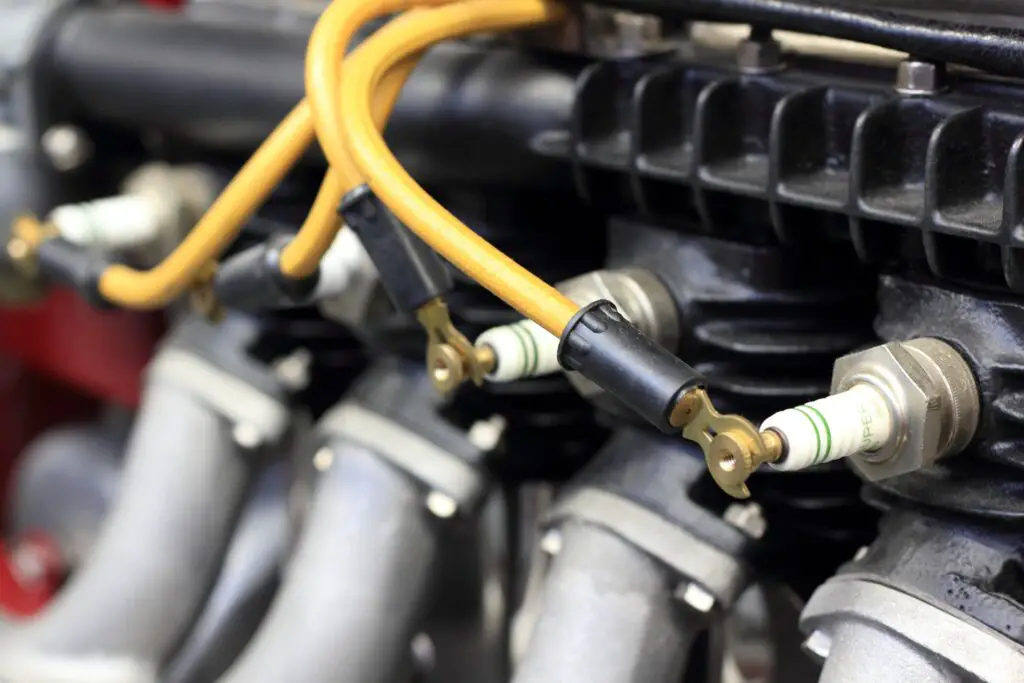Wondering if you should replace ignition coils with spark plugs? When it comes to maintaining your car’s ignition system, there’s often confusion between ignition coils and spark plugs. While both components play a vital role in starting and running your engine, they are not interchangeable.
The question, “Should I replace a car’s ignition coil with a spark plug?” highlights a misunderstanding of how these parts work. Let’s dive deep into the roles, longevity of ignition coils and spark plugs, why they’re different, and how to address issues with each.
Understanding Ignition Coils
An ignition coil is essentially a transformer. Its primary job is to convert the low voltage from the car battery (about 12 volts) into the high voltage required to create a spark in the spark plugs—often 20,000 to 40,000 volts. This spark ignites the air-fuel mixture in the engine’s cylinders, powering your vehicle.
Signs of a Faulty Ignition Coil
- Engine Misfires: A bad coil can cause incomplete combustion.
- Poor Fuel Economy: An inefficient spark wastes fuel.
- Rough Idling: You might notice vibrations when the car is stationary.
- Check Engine Light: Faulty coils often trigger this warning.
Understanding Spark Plugs
Spark plugs, on the other hand, are the endpoint of the ignition system. They use the high voltage supplied by the ignition coil to create the spark that ignites the air-fuel mixture. Spark plugs are small, durable, and designed to withstand extreme heat and pressure inside the engine.
Signs of a Worn Spark Plug
- Hard Starts: The engine struggles to turn over.
- Reduced Performance: Acceleration feels sluggish.
- Higher Emissions: Worn plugs can lead to incomplete combustion, increasing emissions.
- Increased Fuel Consumption: The engine works harder, using more fuel.
Why You Can’t Replace an Ignition Coil with a Spark Plug
The ignition coil and spark plug work together but are not interchangeable. Here’s why:
- Functionality: The ignition coil generates the spark, while the spark plug delivers it. Without the coil, the spark plug has no power source.
- Design: Ignition coils are much larger and more complex than spark plugs. They’re built to handle and amplify electrical energy, a capability spark plugs lack.
- Placement: Coils are often mounted near or directly on the engine, while spark plugs are installed inside the cylinders.
Attempting to replace one with the other isn’t feasible and could lead to further engine damage.

How to Address Ignition System Issues
If you’re experiencing ignition problems, here’s how to determine whether you need to replace the coil, the spark plug, or both:
1. Inspect the Components
- Remove and visually examine the spark plugs. Look for carbon buildup, cracks, or worn electrodes.
- Check the ignition coil for signs of corrosion or damage.
2. Test the Ignition Coil
- Use a multimeter to measure the coil’s resistance. Compare your readings with the manufacturer’s specifications.
- Alternatively, have a mechanic perform a diagnostic test.
3. Replace Faulty Parts
- If the spark plug is worn, replace it with a new one of the same type and specification.
- If the ignition coil is faulty, replace it with an exact match for your vehicle.
4. Routine Maintenance
- Regularly inspect and replace spark plugs as recommended in your owner’s manual.
- Check the ignition coil’s connections and wiring during routine maintenance.
Final Thoughts
While ignition coils and spark plugs are integral parts of your car’s ignition system, they are distinct components with specific roles. Replacing one with the other is not an option, but understanding their functions can help you maintain your vehicle effectively. If you’re unsure about an issue, consult a trusted mechanic to diagnose and resolve the problem.
Have questions about your car’s ignition system? Drop them in the comments below, and let’s get the conversation started!
Discover more from Chikwem
Subscribe to get the latest posts sent to your email.